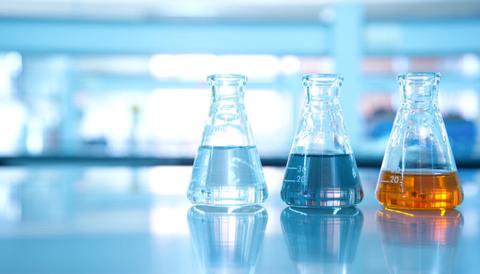Contributor; Alex Tarnava, CEO, HRW
Sometimes timing is perfect. Just two days after I wrote the first article on this subject, an exercise study using a very small dose and relatively low concentration of hydrogen rich water acutely (dosage only taken during exercise, no loading phase) attempted, and failed, to replicate the results from the lowered submaximal heart rate trial using our tablets (as well as a few other studies).
The methodology employed to push exercise, as well as the timing of administration of the hydrogen water, was close to what I would recommend.
The dosage? At best, it was 6% of the dosage used in the study with our tablets, but due to the use of a Trustlex meter to measure the hydrogen, it may have been significantly lower.

A Trustlex hydrogen meter, and other meters using the same technology, is a device that doesn’t actually measure H2, but rather, poorly attempts to estimate H2 based on the oxidative reduction potential (ORP). It can be skewed considerably if pH is not neutral and International Hydrogen Standards association highly recommends against its use.
“However, methods that depend on the measurement of the oxidation-reduction potential (ORP) to estimate hydrogen in water, which incorporate electrodes which are not specific to hydrogen, are discouraged. Although a negative ORP is one of the characteristics of hydrogen water, ORP itself does not show the hydrogen concentration. Thus, technologies which rely upon measurement of ORP should not be used as a method to measure the hydrogen concentration.”
From a well written explanation on H2 Sciences about the use of these meters and their drawbacks:
“Relatively inexpensive meters ($500 or less) currently available, claiming to measure dissolved hydrogen, DO NOT use hydrogen gas probes, but are, instead, based on the ORP-meter platform, and use ORP-type electrodes.
These meters attempt to approximate the level of dissolved hydrogen using the water’s ORP measurement. Because of their sensitivity to pH, these meters are recommended by the manufacturer to be used only to test neutral-pH H2 water (not alkaline-ionized water), and must assume that the pH of the water being tested is exactly 7.
But, because of the large contribution of pH to the ORP measurement, even a small variance in the pH from neutral 7 (which is inevitable and difficult to control) will cause the measured H2 reading to vary significantly.”
The major reason that this meter is a concern is that the water used for the study was from a water ionizer using electrolysis and would therefore have had a high pH. The actual pH of the water was not measured. The actual hydrogen may have been substantially lower than 6% of the dosage used in the LeBaron et al. study using our tablets.


Best case, this study employed 580 ml of ~1 ppm water, or 0.58mg.
This is a dose that hovers right above the IHSA standards for minimal therapeutic dosage, given acutely to elite endurance trained athletes. These athletes had VO2 maxes in the high 50s. I would have expected this trial to have limited success with an acute high dosage, let alone such a low dosage. The acute dosage given to young, fit participants that saw modest results in the lowered sub-maximal heart rate study was 17.2x higher.
It would have been interesting to attempt to replicate this in elite endurance athletes. However, I suspect that the results will be more statistically prominent the less fit a person is, with those at the highest level benefitting in more meaningful ways from less prominent effects giving them a slight edge, than fit amateur athletes benefitting from a more significant edge. I also suspect the results will be more significant with a loading phase, especially after use over time.
Very few compounds have ANY acute effects for exercise performance.
Creatine needs a loading phase, and the shortest published timeline where testosterone shows a result is three weeks, with no evidence that any anabolic steroid has a performance increase after a single dose.
Personally, I believe for the majority of benefits regarding exercise performance, hydrogen water needs a loading phase and a few weeks of intake before benefits become profound.
Caffeine is the most common compound that shows an acute benefit, however, athletes may be wise to use it, only before competition, as to not habituate to its use. In the one study cited, a sprint test was done using 5 mg/kg of body weight. For the average American, this would be a 400 mg dose of caffeine, which is quite high.
The comparative dosage from our 10 mg to (best case) 0.58 mg is a difference of 17.2x, which would be the equivalent of researchers trying to replicate the caffeine results with 23 mg of caffeine. There is roughly 95 mg of caffeine in the average cup of coffee (8 oz or 250 ml).
For all the coffee drinkers, would 60 ml, or less than 2 oz of coffee due the trick? Probably not, so why would this conversion work for hydrogen? Potentially, and very likely, due to the use of the Trustlex meter on high pH water created by electrolysis, the actual dosage was much lower.
Dose matters, concentration matters.
Very few would argue that other molecules work regardless of dosage, it is a bizarre phenomenon when marketers, and even researchers, seem to think any amount of dissolved hydrogen makes hydrogen-rich water, and therefore equivalent to other forms of hydrogen-rich water.
Know your dose, know your concentration, and know that it matters.
¹ https://www.ncbi.nlm.nih.gov/pmc/articles/PMC5753968/
² https://www.ncbi.nlm.nih.gov/pmc/articles/PMC3407788/
³ https://www.newscientist.com/article/dn6265-steroids-boost-performance-in-just-weeks/
⁴ https://www.ncbi.nlm.nih.gov/pubmed/1616022
⁵ https://www.mdpi.com/2075-4663/7/4/95/htm
⁶ https://www.ncbi.nlm.nih.gov/pubmed/29337831
⁷ https://jissn.biomedcentral.com/articles/10.1186/s12970-018-0267-2
⁸ https://www.researchgate.net/publication/232107433_Caffeine_Supplementation_and_Multiple_Sprint_Running_Performance

